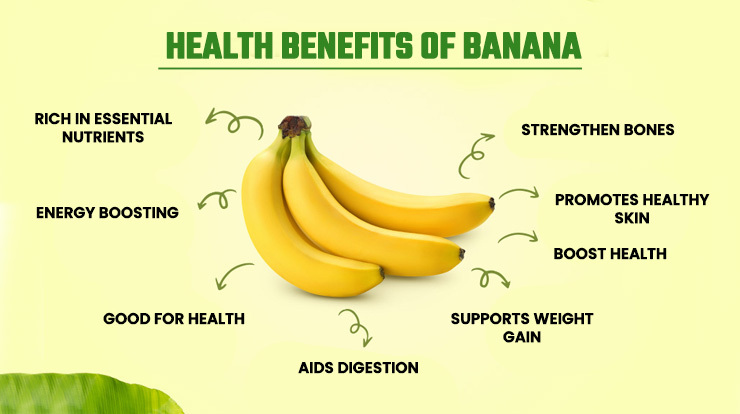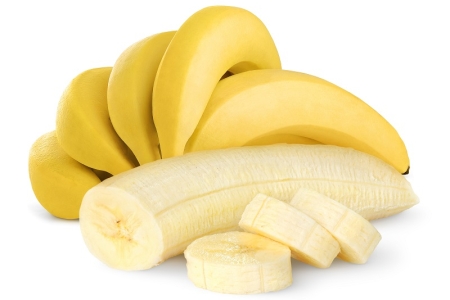The Heart-Healthy Benefits of Bananas: Nature's Cardiovascular Ally
Bananas are among the most widely consumed fruits worldwide, cherished for their natural sweetness, portability, and versatility. Beyond their delightful taste, bananas are packed with essential nutrients that significantly contribute to human health. Among their numerous benefits, bananas play a crucial role in promoting heart health. In this article, we will explore how bananas support cardiovascular well-being, the nutrients responsible for these benefits, and how to incorporate them into your diet for optimal results.
The Nutritional Powerhouse of Bananas
Bananas are more than just a convenient snack. They are a rich source of vital nutrients that support overall health, including:
- Potassium: Bananas are famously high in potassium, a mineral essential for heart function and blood pressure regulation.
- Vitamin B6: This nutrient aids the body in producing hemoglobin and supports neurotransmitter function, indirectly benefiting heart health.
- Fiber: Bananas provide dietary fiber, which helps lower cholesterol levels and supports digestive health.
- Magnesium: This mineral helps maintain a steady heartbeat and reduces the risk of arrhythmias.
- Vitamin C: Known for its antioxidant properties, vitamin C in bananas helps combat oxidative stress, which can damage heart tissues.
How Bananas Benefit Heart Health
Regulating Blood Pressure
High blood pressure, or hypertension, is a major risk factor for cardiovascular diseases, including heart attacks and strokes. Potassium plays a key role in managing blood pressure by counteracting the effects of sodium in the body. Excessive sodium levels can cause water retention, raising blood pressure. Potassium promotes the excretion of sodium through urine, reducing its impact on blood pressure. A medium-sized banana provides approximately 9% of the recommended daily intake of potassium, making it a powerful ally in combating hypertension.
Lowering Cholesterol Levels
Bananas contain soluble fiber, particularly pectin, which helps reduce LDL (bad) cholesterol levels. Elevated levels of LDL cholesterol can lead to plaque buildup in the arteries, increasing the risk of atherosclerosis and heart disease. Incorporating bananas into your diet can help reduce cholesterol absorption in the intestines, thereby promoting healthier cholesterol levels.
Supporting Heart Muscle Function
The heart is a muscle that requires a consistent supply of electrolytes like potassium and magnesium to function optimally. Potassium ensures that electrical signals in the heart are transmitted effectively, maintaining a steady and regular heartbeat. Magnesium, on the other hand, prevents arrhythmias and ensures that heart muscles contract and relax properly.
Preventing Oxidative Stress
Free radicals are unstable molecules that can cause oxidative stress, leading to damage in heart tissues and blood vessels. The antioxidants in bananas, including vitamin C and dopamine, help neutralize free radicals, reducing the risk of inflammation and cell damage. This protective effect supports the overall health of the cardiovascular system.
Promoting Healthy Blood Vessels
Bananas also contribute to the health of blood vessels. The presence of amino acids like tryptophan and essential vitamins in bananas supports nitric oxide production, which relaxes and dilates blood vessels. This process improves blood flow and reduces the risk of complications related to high blood pressure.
Scientific Evidence Supporting Bananas and Heart Health
Numerous studies highlight the cardiovascular benefits of bananas:
- A study published in the Journal of the American Heart Association found that a potassium-rich diet reduces the risk of stroke and heart disease. Participants who consumed sufficient potassium were 24% less likely to suffer from cardiovascular conditions.
- Research in the European Heart Journal showed that individuals with higher potassium intake had significantly lower blood pressure levels, even among those with diets high in sodium.
- Another study revealed that increasing dietary fiber intake by just 10 grams per day—equivalent to about two bananas—could reduce the risk of heart disease by up to 20%.
Incorporating Bananas into Your Diet
Adding bananas to your daily meals and snacks is simple and delicious. Here are some creative ways to enjoy them:
Breakfast Boost
- Slice bananas onto your morning oatmeal or cereal for a heart-healthy start to the day.
- Blend bananas into smoothies with leafy greens, berries, and a dollop of yogurt.
Midday Snack
- Pair a banana with a handful of nuts or seeds for a satisfying and nutritious snack.
- Spread peanut butter or almond butter on banana slices for an energy-packed treat.
Healthy Desserts
- Use mashed bananas as a natural sweetener in baking recipes like muffins, pancakes, or banana bread.
- Freeze bananas and blend them into a creamy, guilt-free alternative to ice cream.
On-the-Go Fuel
- Simply peel and eat a banana whenever you need a quick, portable energy boost.
Tips to Maximize Heart-Healthy Benefits
- Choose Ripe Bananas: Fully ripened bananas are easier to digest and contain higher levels of antioxidants.
- Balance with Other Foods: Pair bananas with protein and healthy fats to create a balanced meal or snack.
- Stay Active: Combine a banana-rich diet with regular exercise to enhance cardiovascular health.
- Monitor Portions: While bananas are healthy, they still contain natural sugars, so moderate your intake, especially if you have diabetes or are watching your calorie consumption.
Bananas in Special Diets
For Hypertension
Bananas are a staple of the DASH (Dietary Approaches to Stop Hypertension) diet, which focuses on reducing sodium intake and increasing potassium-rich foods.
For Athletes
Bananas are an excellent source of energy and electrolytes, making them ideal for pre-or post-workout snacks to support heart and muscle recovery.
For Weight Management
Their high fiber content promotes satiety, helping control hunger and supporting weight management—a critical factor for heart health.
Potential Considerations
While bananas are highly beneficial, certain groups should consume them cautiously:
- Kidney Disease Patients: Individuals with impaired kidney function may need to limit potassium-rich foods, including bananas, as excess potassium can be harmful.
- Diabetics: Bananas have a moderate glycemic index, so portion control is essential to prevent blood sugar spikes.
Conclusion
Bananas are a heart-healthy superfood that offers a myriad of cardiovascular benefits. Their high potassium content regulates blood pressure, their fiber reduces cholesterol levels, and their antioxidants combat oxidative stress. Incorporating bananas into your diet is an easy and delicious way to promote a healthy heart and overall well-being.
By making bananas a regular part of your diet, alongside other healthy lifestyle choices, you can take significant steps toward protecting your heart—your body's most vital organ. Nature has provided us with this golden fruit as a partner in our journey toward better health. So, peel away and enjoy the heart-friendly benefits of bananas today!



























0 comments: